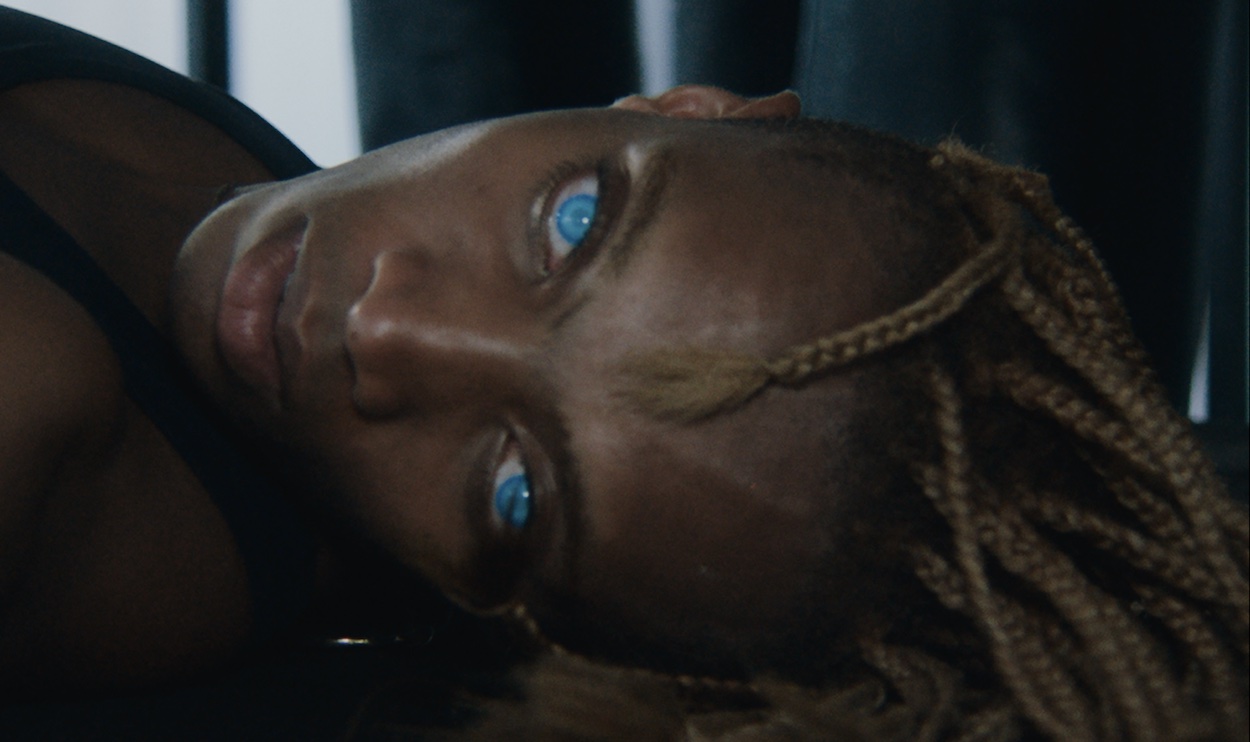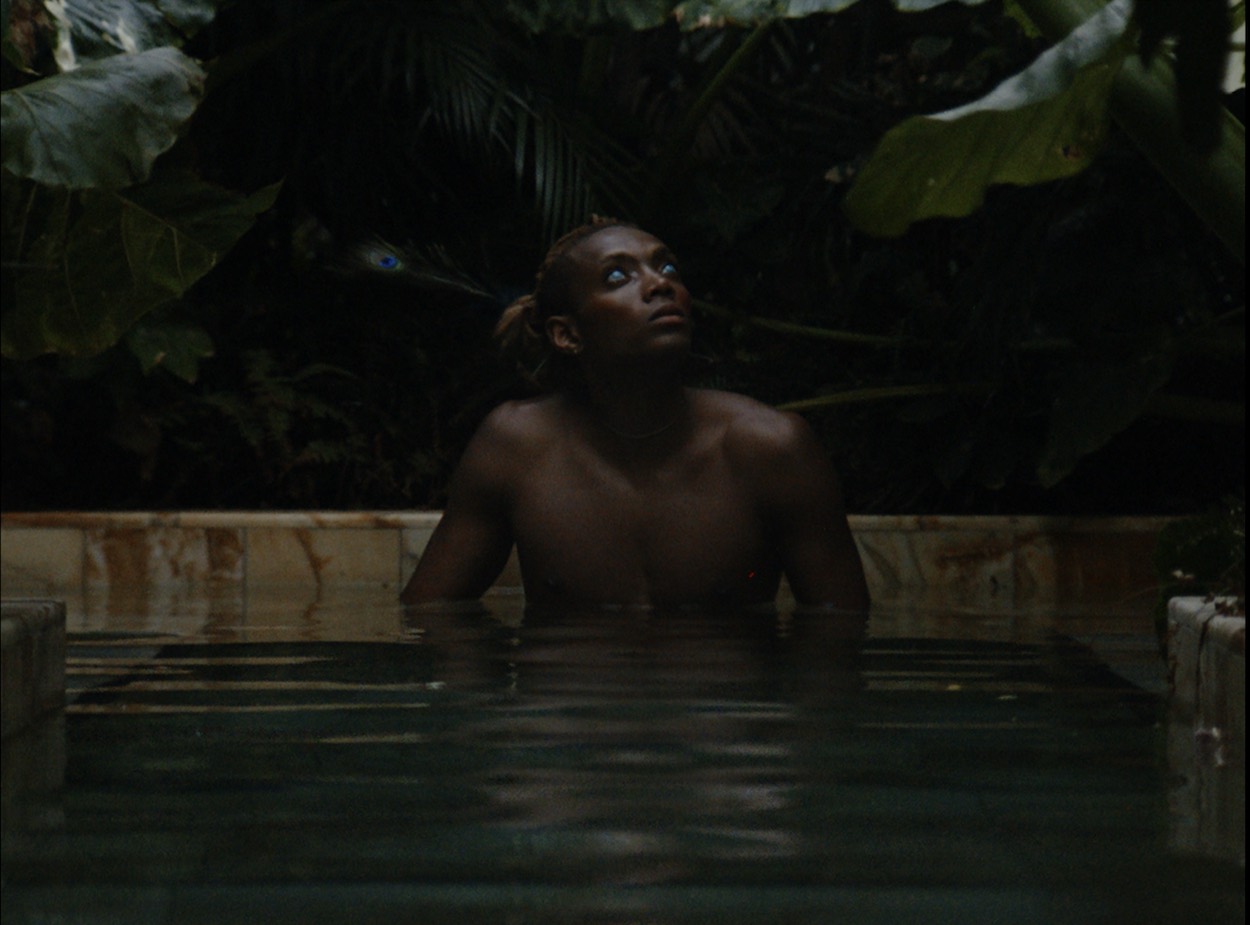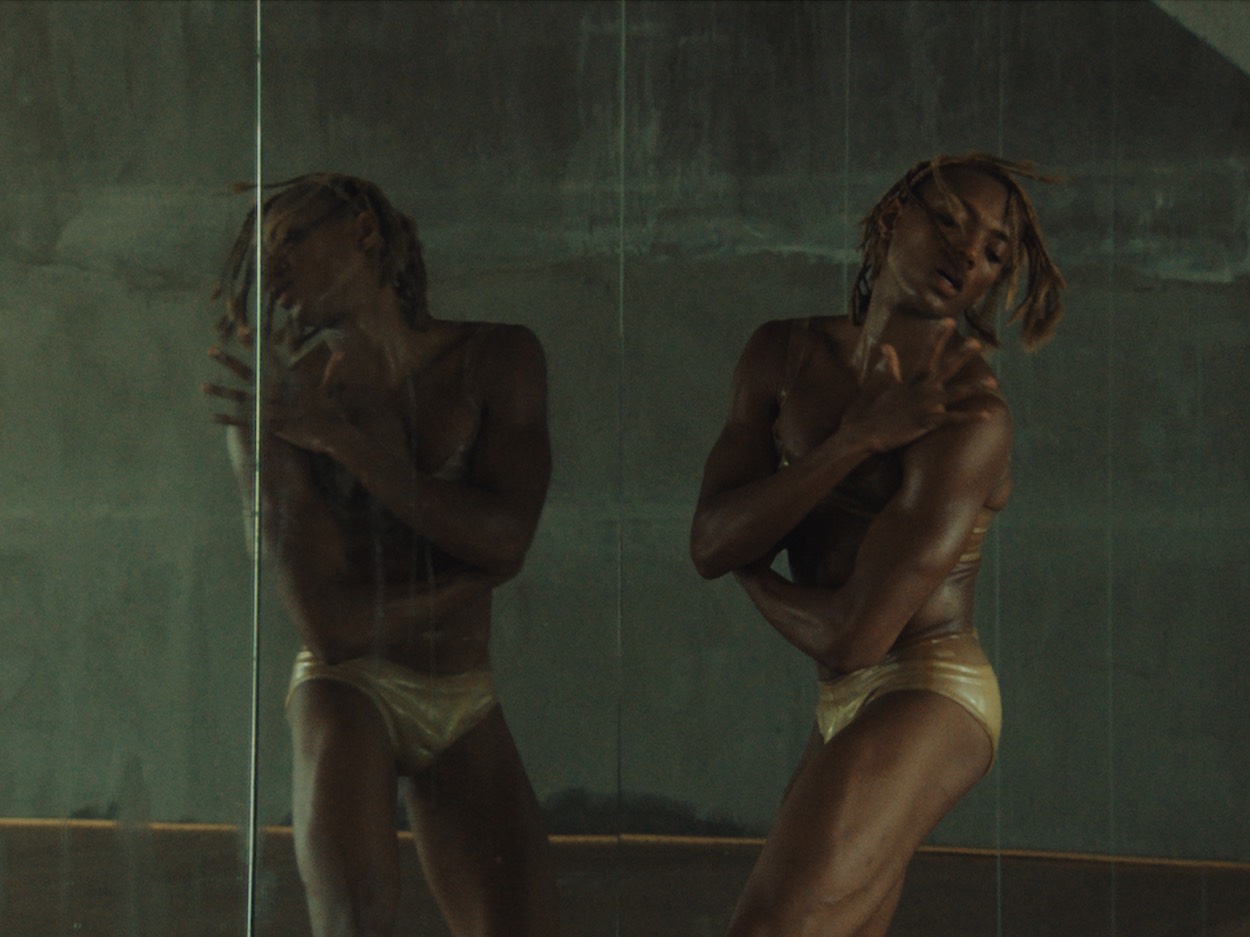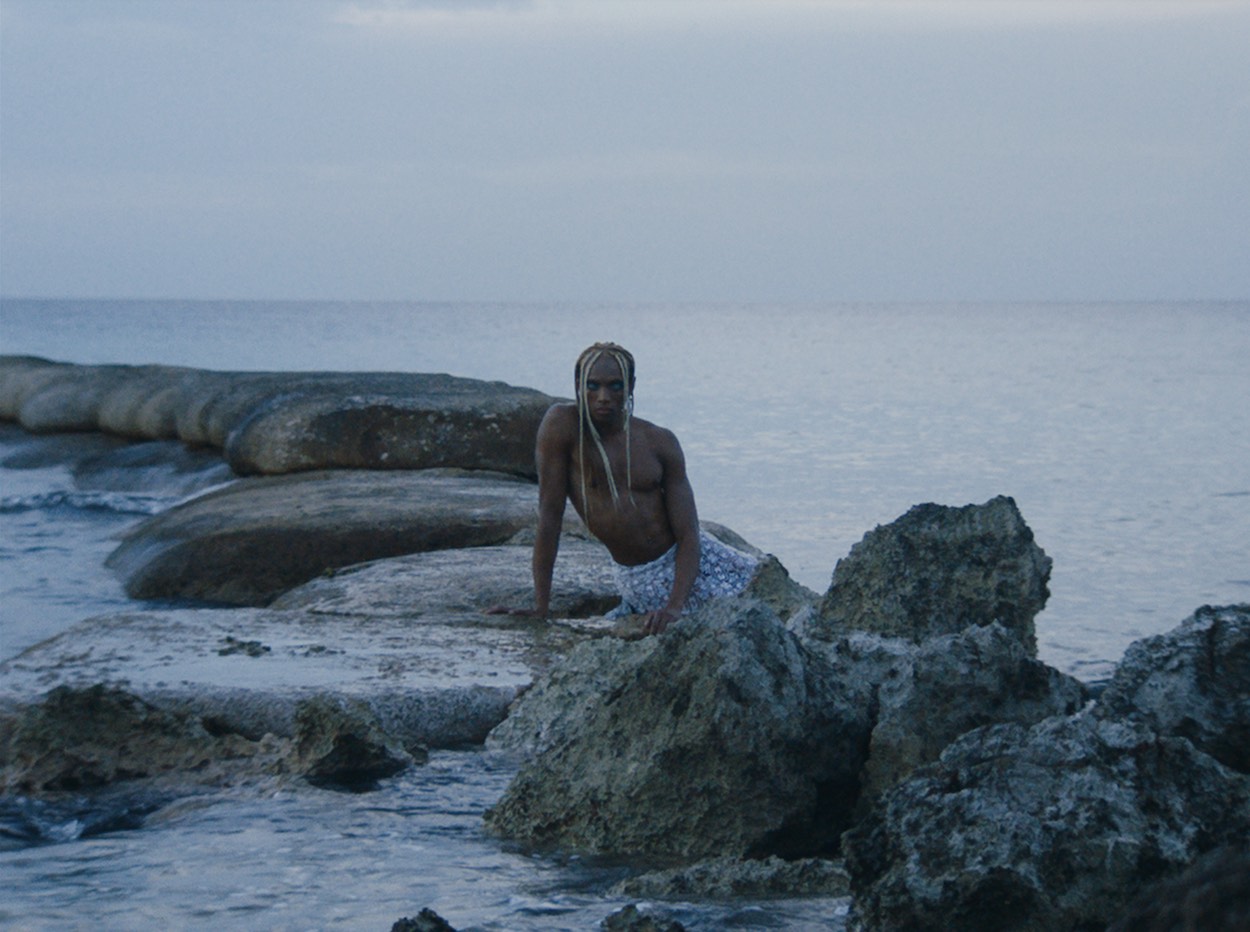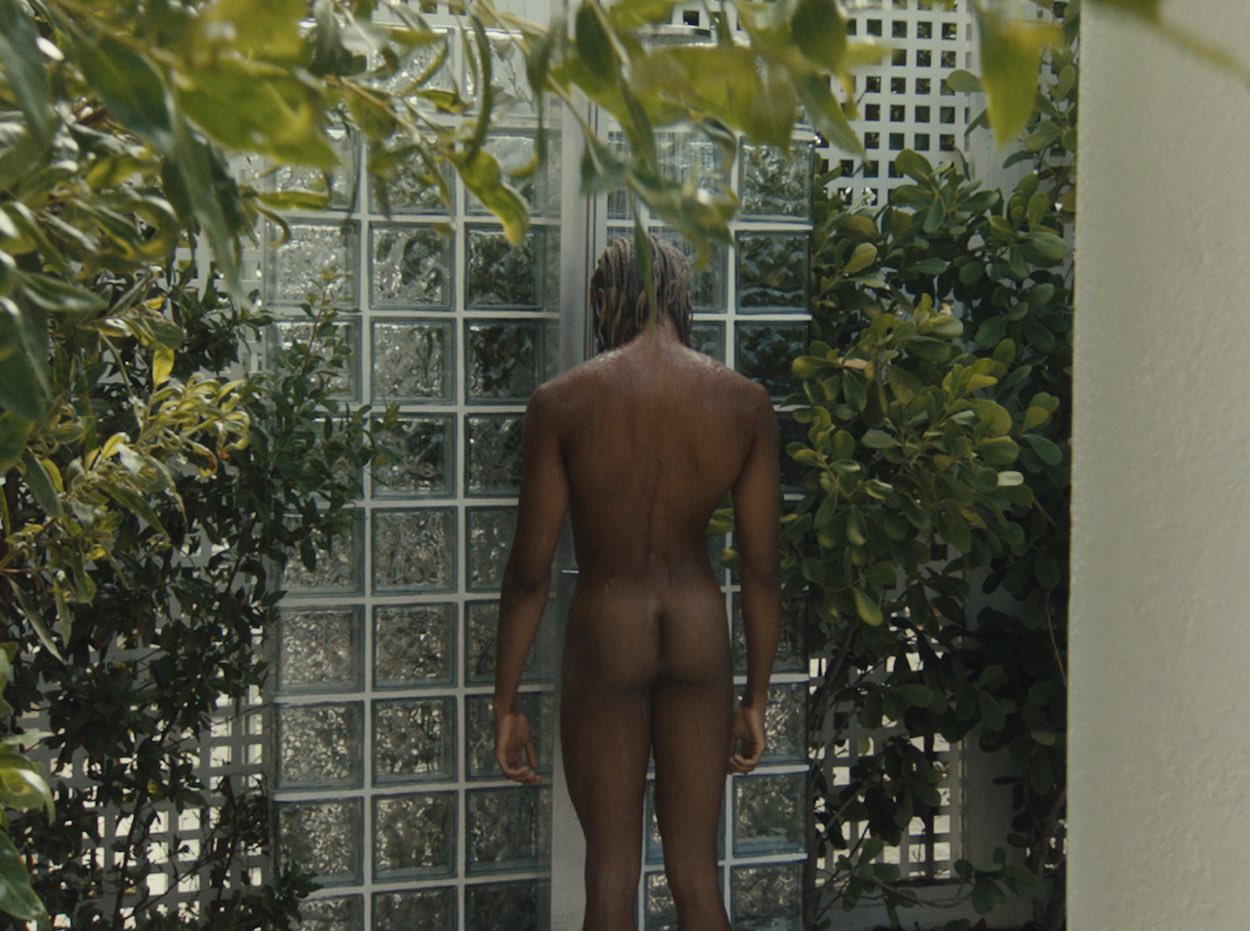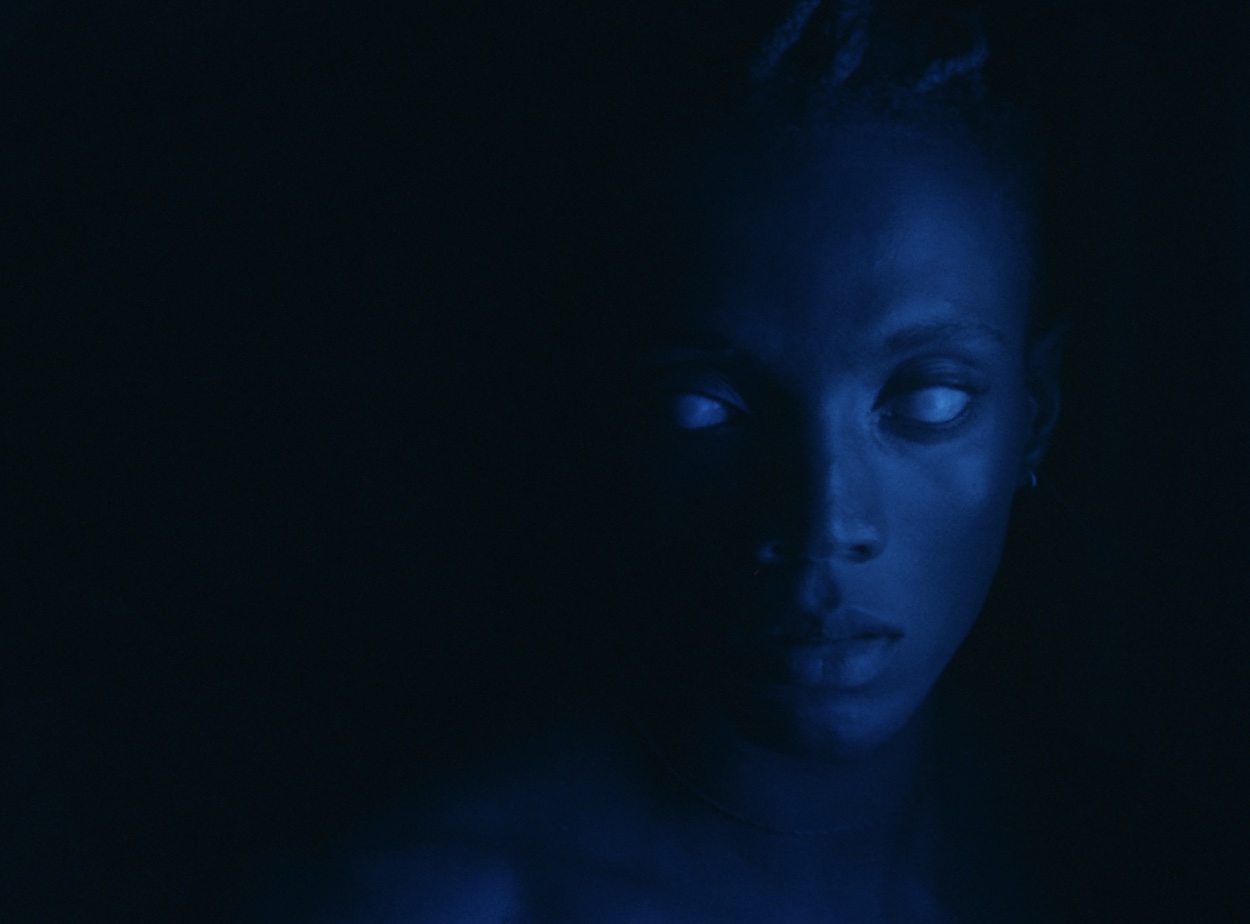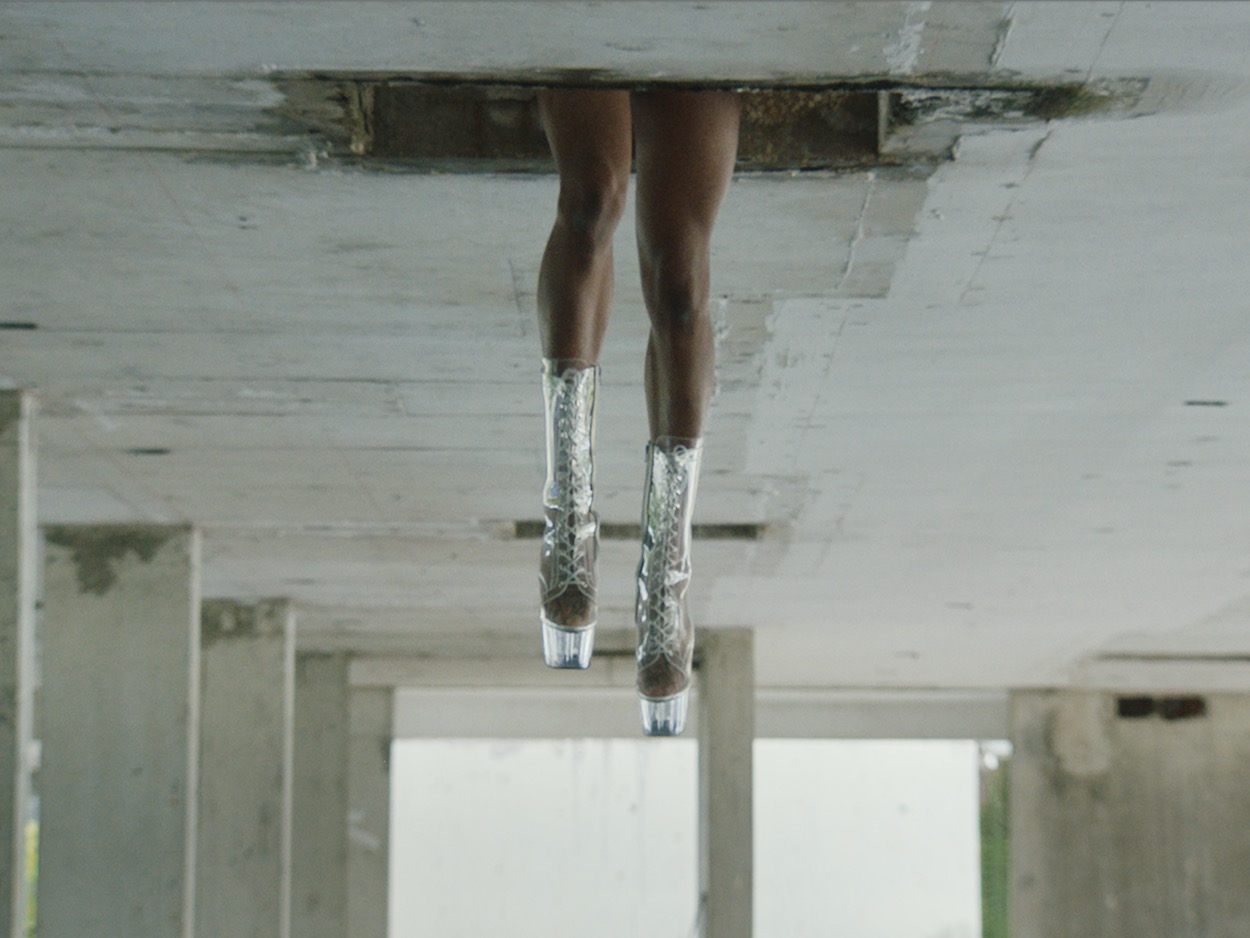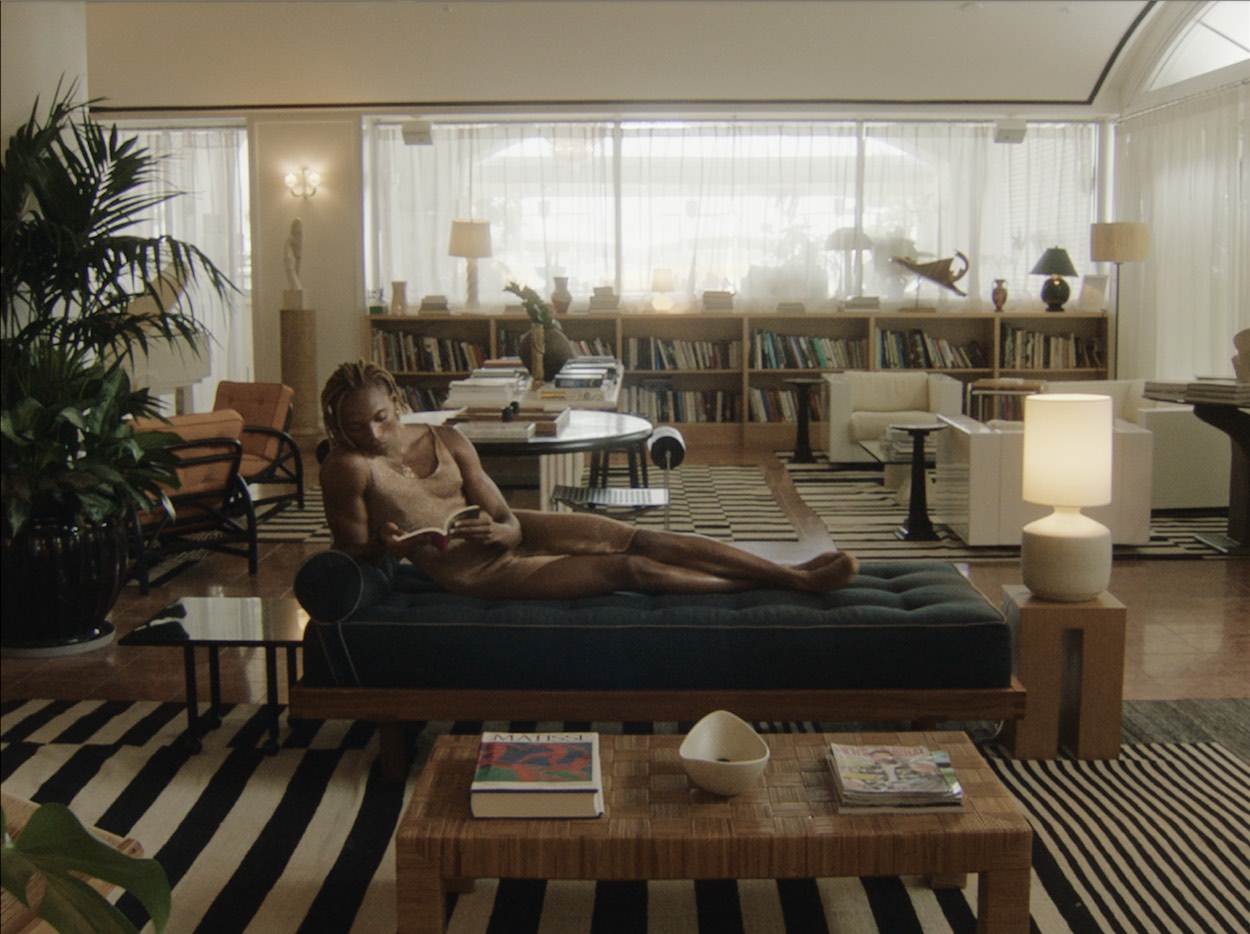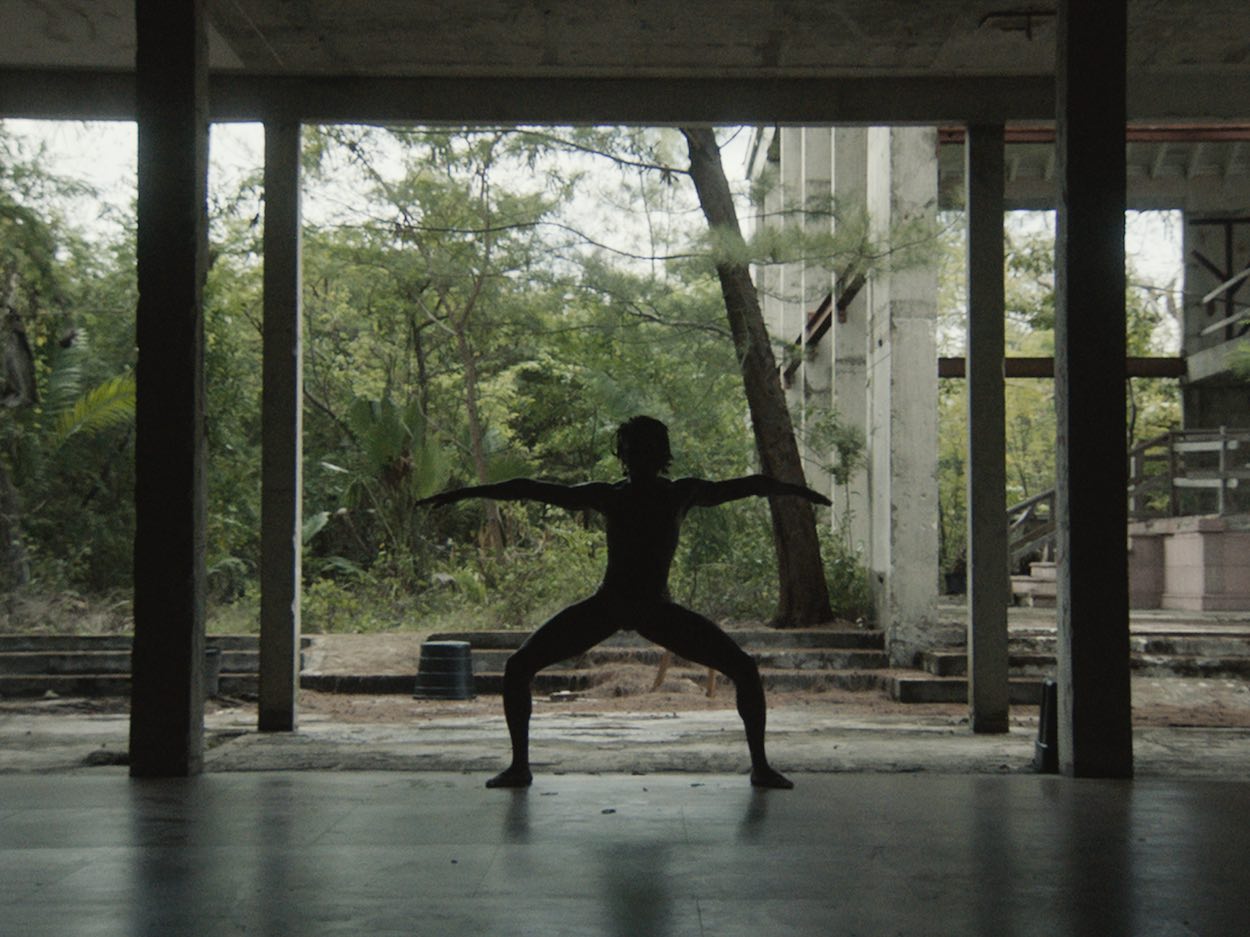You’re a filmmaker, actor and writer currently based in New York City. Can you tell us a bit about your route into filmmaking?
I grew up acting and in theatre. I was a huge theatre kid for as long as I can remember. It was always my dream to go to a school like NYU or UCLA or Michigan for drama, and I did – I went to NYU for acting for two years. I’m originally from Nebraska, where aspirations were more narrow, so coming to NYC I realized I could do so much more than just acting. I decided to take a leave and transfer to NYU Gallatin, their individualized/interdisciplinary school. I studied how film intersects with black queer feminist studies. There, I made ‘How To Raise a Black Boy’ and the rest is history. In this, it was great to re-enter that performance space, but anew; I never thought I would make something like this. It’s great to have that rebound back into performing.
‘Notes on a Siren’, your filmic essay in four parts, is an incredibly ambitious and complex undertaking – what sparked the creative idea and how long was the project in the making?
After a fair amount of spiritual work and getting more connected to my ancestry and their religious and spiritual connections, the ideas for ‘Notes on a Siren’ slowly came together. I felt connected to mermaids due to the themes of Otherness in their lore, and how I felt at times growing up as a Queer person in a remote area. The idea permeated through my education and, once I got connected to Matt D’Amato at Valiant Pictures, the plan drastically expanded and things really got rolling.
The film is inspired by the myth of La Siren, a mermaid goddess figure from Haitian Vodou. Despite being a complex and sophisticated spiritual tradition, Vodou is often reduced to narrow, racist stereotypes – zombies, pins in dolls, black magic etc, and the film nods to this with the intercutting of old black and white film footage. Have you always been part of the Vodou tradition, or is it something you recently became interested in exploring?
It’s been slowly creeping up on me. It’s a part of my family lineage, but it’s often been hidden with Christianity. Historically, Christianity was used as a mask for people who practiced Vodou. Eventually, the mask is integrated, and you forget there was a mask in the first place. My mom was my great-grandmother’s caretaker while she was transitioning/passing away. She would always say, “Simone, I’m doing the Vodou”, and would dance in her room. My mom would dance with her, but wonder what The Vodou was. My great-grandmother was from the South and had those connections. I wouldn’t be surprised if she grew up doing Vodou and it was so frowned upon that she had to hide it. It’s beautiful that now, in the world we live in, I can live freely with the Vodou; I can share it all the time.
In the film, you use the Siren’s mirror – a portal between the human and mystical worlds – as a narrative tool; the camera itself becomes a mirror, allowing you to act as director and subject. What were the challenges of playing on both sides of the camera, technical or otherwise?
Strangely, it wasn’t so bad technically – a huge shoutout to Cory Hess for being fluid and being the person holding this film with care. He understood that this was my mirror from the beginning and would let me move back and forth very freely, which was wonderful. What was trippy for me was seeing myself and then having to sit and critique myself; I had to see myself over and over again and swallow my insecurities. Often, when I looked in the mirror, I fixated on parts of myself that I wanted to change. The film taught me self-acceptance, which was the hardest thing.
The dance sequences are some of the most powerful, raw and visceral parts of the film, particularly paired with the experimental music by Raheaven. How did you end up working with them?
I worked with Raheaven, a musical artist based in the UK. When I got back to NYC, I connected with Zach Beebe who was one of the main composers, which was serendipitous. We met at a party on the beach; I kept meeting people by water, which was trippy. He immediately got the vibe. I brought both Raheaven and Zach back to Joey McGee, which was even better because Joey has been the “music genius” behind all of my projects. Connecting them with him was very exciting.
At its heart, the film is an incredibly personal portrait of transformation. Towards the end, you say you’ve ‘learned a lot’ about yourself – are you happy with the way the film turned out? Were there any aspects you would have liked to have pushed further creatively, or done differently?
I’m learning to be happy. I’m one of those people who always wants to fix something, which is how I’m built. That’s not a bad thing – it’s more that I’m always reaching for the new thing. Overall, I’m really happy with it. It’s a thesis for where I want to go. Maybe not everything is about the Siren, but the film is my promise to be freer in my work. I also conquered my fear of the camera. I didn’t realize my fear until recently, but so much of my fascination with film stemmed from fear. My fear of being captured and out of control. Before I directed, I modelled and acted, and often became a muse or an object for men with cameras. It was scary to be frozen in time in the image of these men. But as the Siren and director, I realized I’m not scared of the camera, I fear the motives of those who operate the camera. This film taught me to take my power back, and I hope it inspires others to take control of their image.
You’ve used several of your films to explore the Black and non-binary facets of your identity; what other topics are you interested in unpicking via future films?
I’m interested in space exploration. I’ve been connecting with the Explorer’s Club in NYC. The privatization of space travel and the isolation of space are very intriguing to me. Furthermore, I also see space as a modern reflection of maritime exploration and would love to synthesize both themes into a project. Also, I would love to get into more humorous projects, make people laugh, and not be so serious all the time!
You’ve also done some commercial work for MTV and Calvin Klein – how receptive have brands been to your very distinctive tone and POV as a creative and filmmaker? Are you keen to do more work in the commercial space?
I’m looking forward to doing more work in the commercial space. When I work with brands, I hope that I get to understand their story and bring nuance, and a new perspective. That’s what’s most exciting to me. For example, with Calvin Klein. I’ve always been obsessed with Calvin Klein, including the person. He transformed fashion and made these intimates, a thing that no one sees most of the time, into a commodity. I was able to play with his story and reimagine the 90s Calvin Klein mania. It was truly an honour to work with them.
Looking ahead to the rest of the year, you’re due to go into production on your second narrative film, ‘Crossroads Blues’ – what can you tell us about that? Anything else in the pipeline?
‘Crossroads Blues’ is on the horizon – it’s a departure from ‘Notes on a Siren’. It’s more grounded and warm with a classic narrative. The project is stylized as a classic MGM melodrama within the backdrop of the Reconstruction Era in New Orleans. The film follows an androgyne named Belize on their sexual awakening with Blues musician Willie. The team at Valiant Pictures and I are excited about the progress, and can’t wait to share more soon.
Interview by Selena Schleh
INFO:
@justicejamaljones
@rainbowfarmprod
Valiant Pictures website
Client: Palm Heights / Something Curated
Keshav Anand, Curator
Production Company: Valiant Pictures
Matthew D’Amato, Founding Partner & EP
Vincent Lin, Founding Partner & EP
Justice Jamal Jones, Director & Writer
Justine Sweetman, Producer
Corey Hess, Cinematographer
Alvaro Herrasti, Sound Engineer
Imani Fuentes, Choreographer
Conner Reddan, Editor
Zach Beebe, Composer
Raheaven, Music Producer
Stephen Axeman, Vocal Composition
Kelt Leray, Guitar Instrumentation
Joseph Magee, Sound Designer & Composer
Calvin Bellas, Colorist
